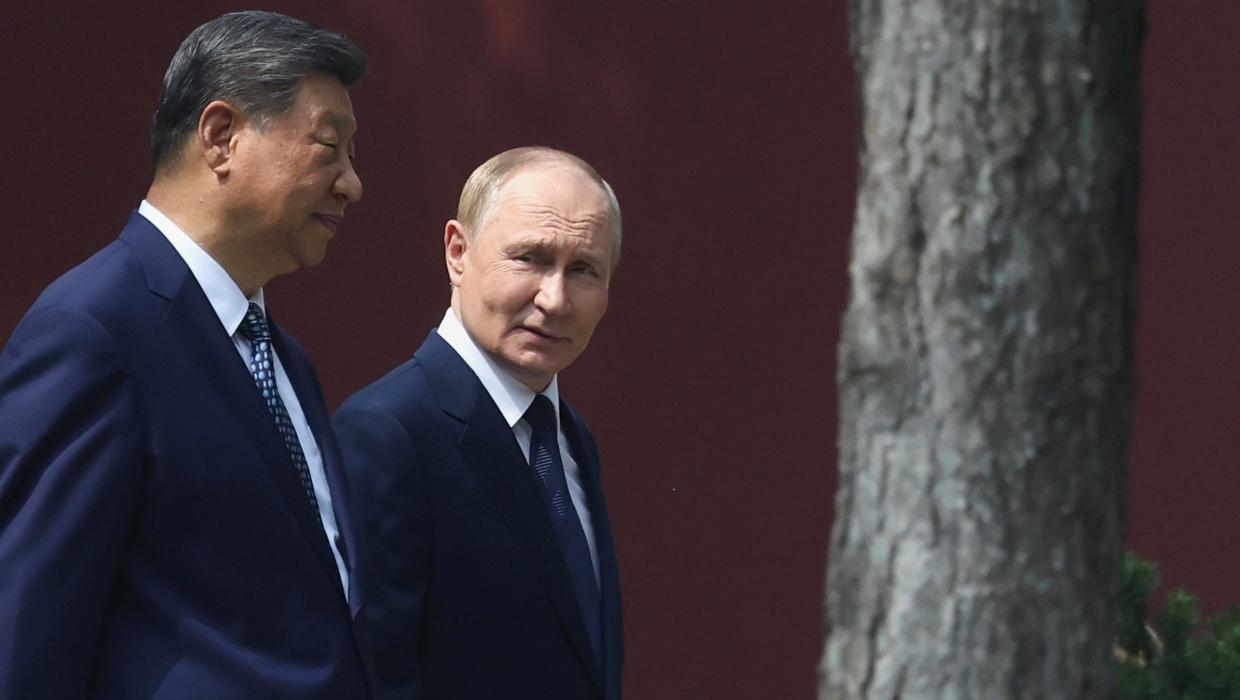Science
Putin’s Ambitious Quest for Immortality Unveiled in Hot Mic Incident

A recent incident involving an open microphone during a meeting has drawn attention to Russian President Vladimir Putin and his apparent interest in extending human lifespan. The discussion, which took place on March 12, 2024, revealed that Putin has ambitious hopes for longevity, hinting at potential investments in scientific research aimed at achieving immortality. This revelation raises intriguing questions about the implications of such pursuits in the global context.
The dialogue coincided with a broader conversation about access to advanced biotechnology and medical research. These conversations often involve leaders who control significant resources and influence over their nations’ scientific communities. This situation points to a potentially transformative era in which affluent nations might lead the charge in life-extension research.
As the global scientific community increasingly investigates the biological mechanisms of aging, the convergence of wealth and intellect becomes crucial. Countries like Russia and the United States, with their robust biotech industries and prestigious research institutions, are well-positioned to make significant breakthroughs. Institutions such as the National Institutes of Health and Oxford University are at the forefront of this research, exploring genetic and cellular pathways that could one day lead to longer, healthier lives.
The implications of these developments extend beyond individual health, potentially reshaping societal structures. If successful, such research could alter demographics, economic systems, and even geopolitical dynamics. Nations that can extend life may gain a strategic advantage over others, influencing everything from workforce demographics to healthcare costs.
The conversation also highlights the ethical considerations surrounding life extension. Questions arise about who would benefit from such advancements and how society would address the disparities between those who can afford access to these technologies and those who cannot. The potential for inequality in health and longevity could amplify existing societal divides.
Furthermore, this intersection of politics and science invites scrutiny regarding transparency and accountability. As public funds may be directed toward such high-stakes research, the global community may demand clarity on the objectives and outcomes of these initiatives. The balance between scientific exploration and ethical responsibility will be critical as nations pursue these ambitious goals.
In conclusion, the implications of Putin’s comments reveal a complex interplay between politics, science, and ethics. As the world watches, the quest for longer life spans may not just be a scientific challenge, but a defining issue of our time. The actions taken in the coming years could reshape our understanding of health, longevity, and the very fabric of society itself.
-

 World3 months ago
World3 months agoTest Your Knowledge: Take the Herald’s Afternoon Quiz Today
-

 Sports3 months ago
Sports3 months agoPM Faces Backlash from Fans During Netball Trophy Ceremony
-

 Lifestyle3 months ago
Lifestyle3 months agoDunedin Designers Win Top Award at Hokonui Fashion Event
-

 Sports3 months ago
Sports3 months agoLiam Lawson Launches New Era for Racing Bulls with Strong Start
-

 Lifestyle3 months ago
Lifestyle3 months agoDisney Fan Reveals Dress Code Tips for Park Visitors
-

 World3 months ago
World3 months agoCoalition Forms to Preserve Māori Wards in Hawke’s Bay
-

 Health3 months ago
Health3 months agoWalking Faster Offers Major Health Benefits for Older Adults
-

 Politics3 months ago
Politics3 months agoScots Rally with Humor and Music to Protest Trump’s Visit
-

 Top Stories3 months ago
Top Stories3 months agoUK and India Finalize Trade Deal to Boost Economic Ties
-

 World3 months ago
World3 months agoHuntly Begins Water Pipe Flushing to Resolve Brown Water Issue
-

 Entertainment3 months ago
Entertainment3 months agoExperience the Excitement of ‘Chief of War’ in Oʻahu
-

 Science3 months ago
Science3 months agoNew Interactive Map Reveals Wairarapa Valley’s Geological Secrets









